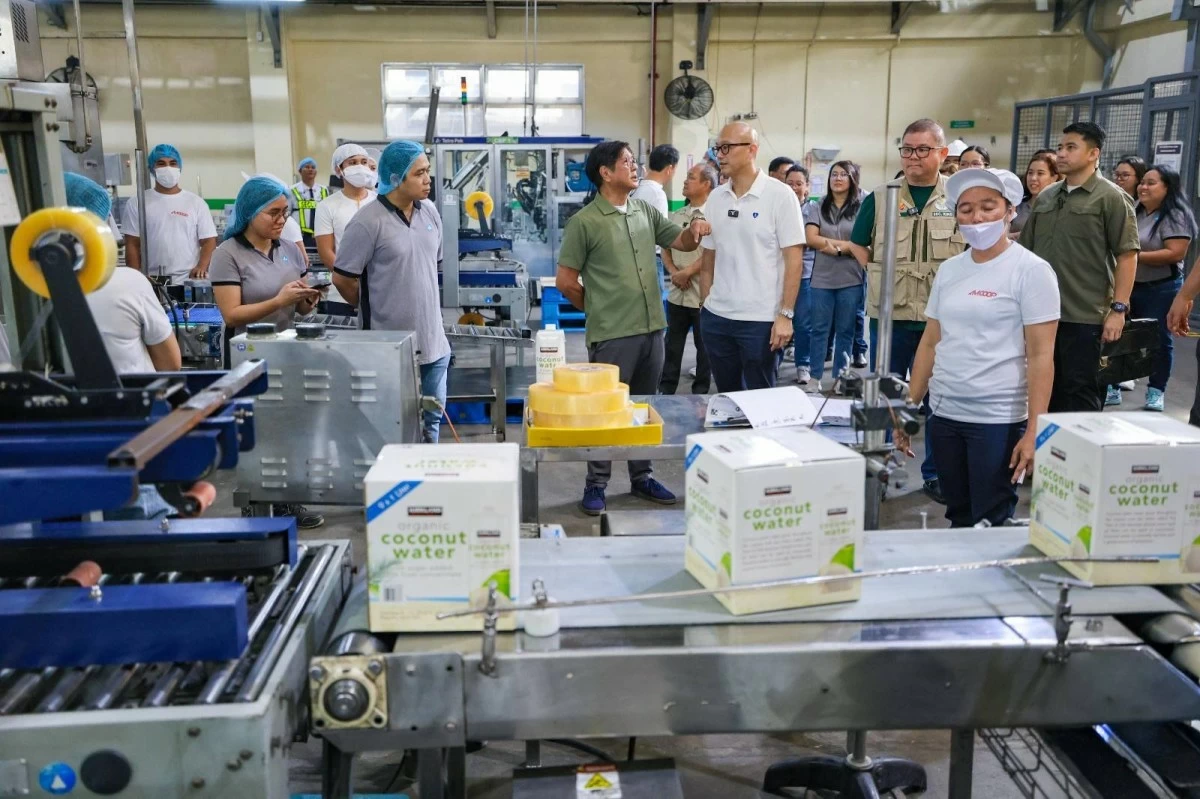Can Coconut Processing Transform Farmer Incomes and Create Rural Jobs?

Strengthening the Coconut Industry: A Commitment to Rural Development
In recent developments, President Ferdinand 'Bongbong' Marcos Jr. has expressed a robust commitment to revitalizing the Philippines' coconut industry. Recognizing the sector's significant potential to create jobs and enhance the income of rural farmers, his administration aims to implement strategies that will elevate this crucial agricultural segment. This article delves into the importance of the coconut industry, the initiatives being undertaken, and the anticipated impact on rural communities throughout the Philippines.
The Importance of the Coconut Industry in the Philippines
The Philippines is one of the world's largest producers of coconuts, with millions of farmers reliant on this crop for their livelihoods. Coconuts are not only a staple in the local economy but also a vital export commodity. The country’s coconut industry contributes significantly to the Gross Domestic Product (GDP) and employs millions of workers across various sectors, from farming to processing and exporting.
Economic Contributions
The economic contributions of the coconut industry are multifaceted:
- Employment Generation: The industry directly employs over 3.5 million farmers and agricultural workers, creating a vast network of rural jobs.
- Export Revenue: The Philippines exports coconut products such as copra, coconut oil, and desiccated coconut, generating substantial foreign exchange earnings.
- Rural Development: The growth of the coconut sector stimulates the local economy, driving demand for goods and services in rural areas.
Health and Nutrition Benefits
Coconuts are often dubbed as "superfoods." They are rich in nutrients and health benefits, making them a favorable choice for consumers worldwide. The health benefits include:
- High levels of medium-chain triglycerides (MCTs) that support metabolism.
- Rich in fiber, which aids digestion.
- Contains antioxidants that can promote overall health.
Government Initiatives to Revitalize the Sector
Understanding the potential of the coconut industry, President Marcos’ administration has announced several initiatives aimed at strengthening this vital sector. These initiatives focus on improving agricultural practices, increasing production efficiency, and enhancing market access for coconut farmers.
Support Programs for Farmers
To ensure that coconut farmers benefit from these initiatives, the government is rolling out various support programs:
- Financial Assistance: Providing loans and grants to farmers to invest in modern farming techniques and technologies.
- Training and Education: Implementing training programs to educate farmers on sustainable practices and effective marketing strategies.
- Infrastructure Development: Investing in infrastructure, such as roads and storage facilities, to improve access to markets.
Enhancing Research and Development
Research and development (R&D) play a pivotal role in improving coconut yield and quality. The government aims to collaborate with academic institutions and private sectors to:
- Develop disease-resistant coconut varieties.
- Innovate processing techniques to increase the value-added products from coconuts.
- Explore new markets and applications for coconut products.
Environmental Considerations and Sustainable Practices
In addition to economic growth, the government recognizes the importance of sustainability in the coconut industry. Implementing environmentally friendly practices is essential for maintaining the health of the ecosystem and ensuring the longevity of coconut farming.
Promoting Sustainable Farming
Strategies to promote sustainable farming include:
- Organic Farming Initiatives: Encouraging farmers to adopt organic farming methods to reduce chemical use and improve soil health.
- Agroforestry Systems: Integrating coconut farming with other crops to promote biodiversity and enhance resilience against climate change.
- Water Management Techniques: Implementing efficient water management systems to optimize irrigation and conserve resources.
The Role of Technology in Advancing the Coconut Sector
Technology is rapidly transforming the agricultural landscape, and the coconut industry is no exception. Embracing modern technology can significantly enhance productivity and competitiveness.
Adopting Innovative Technologies
Key technological advancements that can benefit the coconut industry include:
- Precision Agriculture: Utilizing data analytics and satellite imagery to monitor crop health and optimize resource allocation.
- Mobile Applications: Developing apps that provide farmers with real-time market information, weather forecasts, and best practices for cultivation.
- Automation: Investing in automated machinery for harvesting and processing to reduce labor costs and increase efficiency.
The Impact on Rural Communities
As these initiatives take shape, the anticipated impact on rural communities is expected to be profound. Strengthening the coconut industry not only promises economic benefits but also social upliftment for farmers and their families.
Enhancing Livelihoods
By increasing farmers' incomes through better practices and access to markets, families can achieve a higher standard of living. This includes:
- Improved access to education for children.
- Better healthcare options.
- Increased investment in local businesses and services.
Community Development
With a thriving coconut industry, rural communities can expect enhanced infrastructure development, such as improved roads and transportation systems. This development fosters connectivity and access to essential services, further contributing to community growth.
Conclusion: A Promising Future for the Coconut Industry
President Marcos’ commitment to strengthening the coconut industry offers significant hope for the millions of farmers who depend on this vital sector. By focusing on innovative practices, sustainability, and technology, the government aims to create a more prosperous future for rural communities across the Philippines. The road ahead may be challenging, but with collective effort and determination, the coconut industry can flourish, providing jobs and improving the lives of countless families.
Frequently Asked Questions
What is the current state of the coconut industry in the Philippines?
The coconut industry remains a crucial component of the Philippine economy, employing over 3.5 million individuals and contributing significantly to export revenues.
How will government initiatives support coconut farmers?
Government initiatives will provide financial assistance, training programs, and infrastructure improvements to enhance farmers' productivity and market access.
What are the environmental considerations for coconut farming?
Promoting sustainable practices, such as organic farming and agroforestry, will help protect the environment while ensuring the long-term viability of coconut farming.
How can technology improve the coconut industry?
Technological advancements such as precision agriculture, mobile applications, and automation can enhance productivity and reduce costs for coconut farmers.
As the Philippine government moves forward with its commitment to the coconut industry, it is essential for stakeholders to unite in their efforts. The potential for job creation and rural development is immense, and with collective action, the future can be bright for coconut farmers and their communities. What do you think are the most effective strategies to ensure the growth of the coconut industry? #CoconutIndustry #RuralDevelopment #PhilippinesAgriculture
Published: 2025-07-04 23:43:46 | Category: Uncategorized



